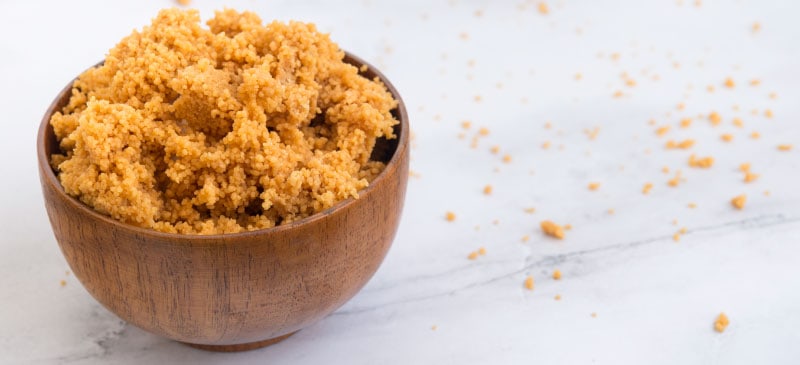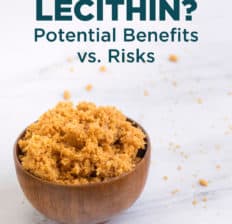This Dr. Axe content is medically reviewed or fact checked to ensure factually accurate information.
With strict editorial sourcing guidelines, we only link to academic research institutions, reputable media sites and, when research is available, medically peer-reviewed studies. Note that the numbers in parentheses (1, 2, etc.) are clickable links to these studies.
The information in our articles is NOT intended to replace a one-on-one relationship with a qualified health care professional and is not intended as medical advice.
This article is based on scientific evidence, written by experts and fact checked by our trained editorial staff. Note that the numbers in parentheses (1, 2, etc.) are clickable links to medically peer-reviewed studies.
Our team includes licensed nutritionists and dietitians, certified health education specialists, as well as certified strength and conditioning specialists, personal trainers and corrective exercise specialists. Our team aims to be not only thorough with its research, but also objective and unbiased.
The information in our articles is NOT intended to replace a one-on-one relationship with a qualified health care professional and is not intended as medical advice.
Soy Lecithin Benefits for Cellular Function & Lowering Cholesterol
September 20, 2024

Soy lecithin is one of the most widely used food additives on the market today. It’s often used as an ingredient in food products and is sold in supplement form to boost your health.
Yet, surprisingly, there is a lot of confusion about soy lecithin because it includes the word “soy.” What is soy lecithin and is it good for you?
The bottom line is that there are pros and cons to consuming soy lecithin, but it’s definitely not as bad as some make it out to be. When you choose the right soy lecithin products, it actually boasts health benefits, such as its ability to lower cholesterol levels and boost brain function.
What Is Soy Lecithin?
First isolated by French chemist Theodore Gobley in 1846, lecithin is a generic term to designate a variety of naturally occurring fatty compounds found in animal and plant tissues.
Composed of choline, fatty acids, glycerol, glycolipids, phospholipids, phosphoric acid and triglycerides, lecithin was originally isolated from egg yolk. Today, it is regularly extracted from soybeans, cottonseed, marine sources, milk, rapeseed and sunflower.
Soy lecithin is extracted from raw soybeans. First the oil is extracted using a chemical solvent, like hexane, and then the oil is processed (which is called degumming) so the lecithin is separated and dried. It is usually used as a liquid but can also be purchased as lecithin granules.
By and large, the vast majority of soy lecithin use centers around its usefulness as an excellent emulsifier. Emulsifiers help keep different ingredients within foods together and maintain the texture, taste and appearance of foods. Soy lecithin’s ability to emulsify fats also make it an ideal ingredient for nonstick cooking sprays and soaps.
Lecithin supplements typically come from sunflower seeds, eggs or soybeans, with soy being the most common ingredient.
Nutrition Facts
Oftentimes extracted from soybean oil, one tablespoon (13.6 grams) of soybean lecithin oil contains:
- Calories: 104
- Total Carbohydrate: 0 g
- Fiber: 0 g
- Sugar: 0 g
- Total Fat: 13.6 g
- Saturated Fat: 2 g
- Polyunsaturated Fat: 6.2 g
- Monounsaturated Fat: 1.5 g
- Protein: 0 g
- Cholesterol: 0 mg
- Sodium: 0 mg (0% DV*)
- Vitamin K: 25 mcg (21% DV)
- Vitamin E: 1.11 mg (7% DV)
*Daily Value: Percentages are based on a diet of 2,000 calories a day.
Benefits
1. Contains choline and phospholipids that boost cellular membrane function
Lecithin supplements contain a complex mixture of phospholipids, which compose the cellular membrane structure and are used for energy storage.
Two types of phospholipids that are essential components for biological membranes include phosphatidycholine and phosphatidylserine.
Researchers in Japan found that the administration of fresh phospholipids can work to replace damaged cell membranes and restore the structure and function of the cellular membrane. This is called lipid replacement therapy, and it has been shown to improve fatigue, diabetes symptoms, degenerative diseases and metabolic syndrome.
Phosphatidylcholine is one of the primary forms of choline and acts as an essential component in cell membrane signaling. Phosphatidylcholine is produced in the liver and converted into choline, which plays several important processes within the body.
Phosphatidylcholine supplementation has been found to support healthy cholesterol levels, liver function and brain function. Many of the potential benefits of soy lecithin powder or supplements come from the choline content.
Phosphatidylserine is found in the membranes of all animals, higher plants and microorganisms. In humans, it’s most concentrated in the brain, and phosphatidylserine supplementation is often used to improve brain function in elderly patients.
Research also shows that it might be beneficial for children and young people with ADHD and mental health conditions.
2. Improves cholesterol levels
Dietary soy lecithin supplementation is most strongly connected with decreasing hyperlipidemia and influencing lipid metabolism. It’s known for its important role in processing fat and cholesterol, which is why people sometimes take soy lecithin supplements to lower cholesterol naturally.
Research suggests that properties of lecithin have the ability to reduce the excess of LDL cholesterol and promote the synthesis of HDL in the liver.
A 2010 study published in the journal Cholesterol evaluated total cholesterol and LDL levels after soy lecithin administration in patients with diagnosed hypercholesterolemia levels. For the study, one 500-milligram soy lecithin supplement was taken by 30 volunteers every day, and the results were impressive.
Among the study volunteers who took the soy lecithin supplement, they experienced the following: 41 percent reduction in total cholesterol after one month and 42 percent reduction after two months; for LDL levels, they saw a 42 percent drop after one month and a 56 percent decrease after two months.
This study suggests that soy lecithin may be used as a dietary supplement for the treatment of hypercholesterolemia.
3. May boost immunity
Soy lecithin supplementation has been shown to significantly boost immune function among diabetic rats. Brazilian researchers discovered that daily supplementation with soy lecithin caused macrophage activity (white blood cells that engulf foreign debris) of diabetic rats to increase by 29 percent.
Additionally, they discovered that lymphocyte (white blood cells that are fundamental to the immune system) numbers skyrocketed 92 percent in non-diabetic rats. This suggests that, at least in rats, soy lecithin has immunomodulatory effects.
More research is needed to conclude the role of soy lecithin in the human immune system.
4. May help the body deal with physical and mental stress
As discussed above, one of the many keys to soy lecithin’s health benefits is its compound known as phosphatidylserine. Known to affect stress hormones adrenocorticotropic hormone (ACTH) and cortisol, phosphatidylserine derived from cow brains has been shown to dampen response to physical stress.
Testing to see how phosphatidylserine derived from soy lecithin compared, German researchers evaluated the effects that soy lecithin phosphatidic acid and phosphatidylserine complex (a combination referred to as PAS) supplementation has on ACTH, cortisol and a psychological evaluation known as the Spielberger State Anxiety Inventory stress subscale.
Published in the Danish journal Stress, the trial compared 400 milligrams, 600 milligrams and 800 milligrams of PAS on groups of 20 people each. The researchers not only discovered that PAS has some pretty remarkable effects on the human psyche, but they uncovered that it is dose-dependent.
The 400 milligram dosage was most effective at blunting serum ACTH and cortisol levels than the larger doses.
This study suggests that specific properties in soy lecithin may have a selective stress-dampening effect and may even be used in the natural treatment of stress-related disorders.
5. May improve cognitive function
A three-month, double-blind, placebo-controlled study published in Advances in Therapy evaluated the positive effects of a supplement containing a blend of 300 milligrams of phosphatidylserine and 240 milligrams of phosphatidic acid that was produced from soy lecithin.
The supplement or placebo was given to non-depressive elderly patients with memory problems three times a day for three months. In a separate investigation, the supplement was given to patients with Alzheimer’s disease to measure its effect on their daily functioning, mental health, emotional state and self-reported general condition.
Researchers found that by the end of the treatment period, the supplement blend made from properties found in soy lecithin significantly improved memory and prevented the “winter blues” in elderly patients compared to those receiving the placebo.
Among the Alzheimer’s disease patients, the supplement group had a 3.8 percent deterioration and 90.6 percent stability in daily functioning compared to 17.9 percent and 79.5 percent under the placebo. Plus, 49 percent of those in the treatment group reported an improved general condition compared to 26.3 percent of those receiving the placebo.
These findings suggest that soy lecithin-derived phosphatidylserine and phosphatidic acid may have a positive influence on memory, cognition and mood among the elderly and those suffering from cognitive conditions.
6. May help relieve menopause symptoms
Research suggests that soy lecithin supplements may help improve menopause symptoms by improving vigor and blood pressure levels in menopausal women. A 2018 randomized, double-blind, placebo-controlled study including 96 women between the ages of 40 to 60 sought to investigate whether or not soy lecithin supplements could help to relieve symptoms of fatigue.
The participants were randomized to receive active tablets containing high-dose (1,200 milligrams per day) or low-dose (600 milligrams per day) soy lecithin or a placebo for an eight-week period.
Researchers found that the improvements in fatigue symptoms, diastolic blood pressure and cardio-ankle vascular index (to measure arterial stiffness) were greater in the high-dose group compared with the placebo group.
Risks and Side Effects
It appears that soy lecithin only contains trace levels of soy proteins. For this reason, researchers believe that soy lecithin will not provoke allergic reactions in the majority of soy-allergic consumers because it does not contain sufficient soy protein residues.
Do use caution when eating any product containing soy, though. People with more sensitive soybean allergies still may react negatively to soy lecithin ingestion and will have to be more conscious of packaged foods containing this ingredient.
When determining soy lecithin side effects and safety, it’s important to consider the extraction process that’s required to get the emulsifier from soybeans. Hexane, a neurotoxin with many side effects, is a solvent used to extract the lecithin from soybeans. While most of it gets removed during the multi-step process, small amounts may remain the final product.
While the European Union limits hexane residues in soy ingredients to 10 parts per million (ppm), the FDA in the U.S. doesn’t make manufacturers test for it. To be safe, purchase organic soy lecithin with the USDA Organic seal that ensures the soybeans were not processed with hexane.
Another potential issue with soy lecithin is that unless it’s labeled as “organic soy lecithin,” it probably comes from genetically modified soybeans.
Final Thoughts
- Lecithin is a generic term to designate a variety of naturally occurring fatty compounds found in animal and plant tissues. Soy lecithin, in particular, is extracted from soybeans and often used as an emulsifier.
- Soy lecithin is composed of choline, fatty acids, glycerol, glycolipids, phospholipids, phosphoric acid and triglycerides. It contains very little soy protein, so it’s generally considered safe for people with soy allergies.
- Soy lecithin also has multiple potential health benefits, including its ability to improve cholesterol, help the body deal with mental and physical stress, improve cognitive function and relieve menopause symptoms.
- Because of potential hexane residue in the final product, look for organic options whenever possible.




